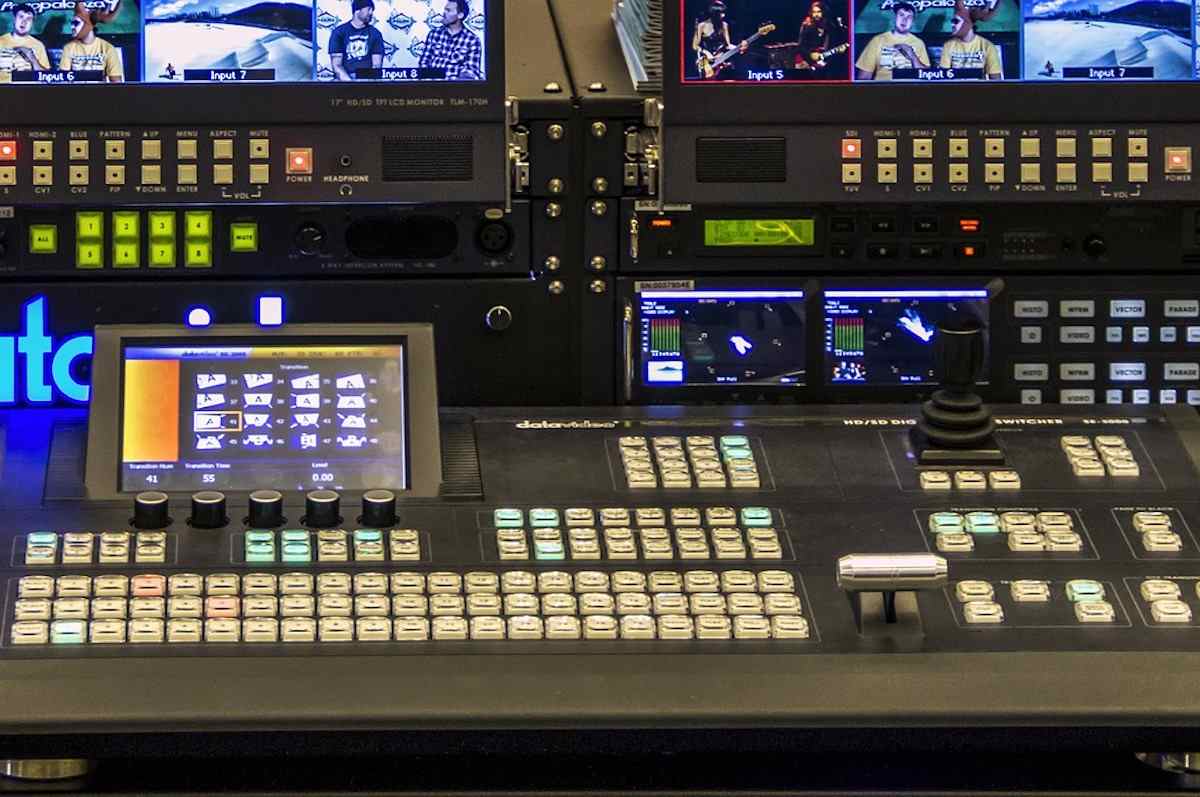Electronic Recycling for the Entertainment Industry
The entertainment industry is wide and varied. It includes everything from music, television, sports, movies, video games, etc. Most, if not all, forms of entertainment have one thing in common, however: They have all seen significant changes due to the advent of digital technology.
As the technology evolves, people’s tastes in entertainment change as well, and it can be a challenge for the those in the industry to change with the times and give the people what they want without investing too much in what turns out to be only a passing fad. However, there is one constant that those in the changing entertainment industry can rely on: TechWaste Recycling. We dispose of, recycle, and purchase unwanted electronics and equipment in a way that is skillful, safe, environmentally responsible, and convenient.
Technological Innovations in the Entertainment Industry
Some technological advances in the entertainment industry happen visibly, while others occur behind the scenes. Sometimes audiences may drive the changes, while other times they may be only vaguely aware of them.
Since the entertainment industry is so varied, it would be impossible to provide an exhaustive listing of all the technological innovations that have taken place. Rather, we shall provide an overview of different sectors where some of the most significant advances have occurred and in which have significant needs for electronics and product recycling and disposition.


Movie Industry Electronics
In 2009, approximately 90 percent of the top-grossing movies in the United States were shot on film, with only 20 percent being digitally recorded. A mere six years later, in 2015, almost the exact opposite was true, with only a little over 20 percent of top-grossing movies shot on film and slightly less than 90 percent recorded digitally. This represents a massive shift in the industry over the course of a less than 20 years; recording movies digitally was virtually unheard of in the year 2000.
Despite the dramatic upward trend in digital movie production, it is still quite controversial within the movie industry, with some directors and photographers pledging to make movies on film as long as they are able. However, for those choosing to adopt the new technology, for either aesthetic or financial reasons, it becomes necessary to dispose of the old cameras used to record on film. It may also be necessary to dispose of old film stock, which must be handled professionally due to the dangerous chemicals it contains.
Changes to the way people make movies have also led to advances in the way movies are exhibited. Movies that are shot digitally typically require digital projection as well, and movie theaters are under increased pressure to adopt the new technology despite additional costs involved. Only time will tell how long it will be cost effective for theaters to hold onto old film projectors.
Sports Stadiums
Both the display and the means of control, scoreboards in sports stadiums have developed significantly over the past several decades. Less than 40 years ago, the highly inefficient incandescent bulbs used in most scoreboard started to be replaced with light-emitting diodes, which operate more efficiently and don’t need to be replaced as often. Radio transmission and computer control allow data to be sent to scoreboard displays without the benefit of hard wiring. The new style displays also provide enhanced video, entertainment, and visuals far beyond simply showing the scores of yesteryear. As result, stadiums from major pro sports to your local high schools are upgrading to new electronic scoring and display options. Additionally, major stadiums across the country add LCD TVs throughout the concourses, within seating and dining areas to enhance the spectator experience. Every major sports or concert venue now also provides a long list of dining options, many of which are designed to efficiently and quickly move customers through lines. These food vending locations typically have fast order POS machines, enhanced visual displays to make ordering easy. All of these are things that are in constant need of replacing and recycling.
People come to a game to have fun, but unfortunately, a stadium now present a soft target for a potential terrorist. In the interest of keeping everyone safe, security equipment such as metal detectors are sometimes employed. These devices undergo constant upgrades to provide the most effective level of protection and allow everyone to enjoy the game in safety.
Arcades
Believe it or not, arcade games have existed for well over a century. The original arcade game, Skee-Ball, was invented in 1909 and is still played in arcades and on carnival midways to this day. Needless to say, arcade games have gone through several evolutionary steps over the intervening decades.
- The first pinball games were developed in 1933, and many communities initially banned them, believing that they were a form of gambling.
- The first commercially successful coin-operated video game was Pong, released in 1972, just a year after the coin-operated video game was first invented.
- The most successful video game of all time is Pac-Man, first released in 1980.
- With Dance Dance Revolution, first released in 1999, arcade games became an aerobic exercise involving the whole body. It still remains popular 20 years later.
Since that time, there have been a number of advancements to the arcade industry, including flight simulators, virtual reality, and an immersive 4D gaming experience. While arcades themselves retain a significant measure of popularity, the games themselves fall in and out of fashion. The arcade industry and arcade game machines is constantly in need of machine disposal and recycling. All containing circuit boards, screens, chips and various electronics, arcade owners are able to rely upon TechWaste Recycling to properly handle any disposition needs they may have.
Providing Entertainment Electronics Disposal
Regardless of your sector within the entertainment industry and the types of equipment you work with, TechWaste Recycling can help you dispose of it properly once it wears out or becomes obsolete. Additional examples include the following:
- Lasers
- Stage lights
- Sound boards
- Amplifiers
- Microphones
- Cameras
- Film stock (used or unused)
- Video and audio monitors
- Karaoke machines
- Vinyl discs, cassettes, CDs
- Turntables
- Stereos
- Cables
- Sound and video recorders
- Video game consoles
- Television sets (cathode-ray, LCD, etc.)
- VCRs/DVD players
- Computer hardware
Advantages of TechWaste Recycling
TechWaste Recycling holds a number of certifications to ensure that the handling of electronic equipment is compliant with applicable laws. In addition, we hold ourselves to strict standards related to safety, health, and the environment.
TechWaste has served Southern California for 20 years and pride ourselves on providing excellent customer service, particularly in regard to convenient pickup at your location. To find out more about how TechWaste Recycling can serve you, contact us today.










































